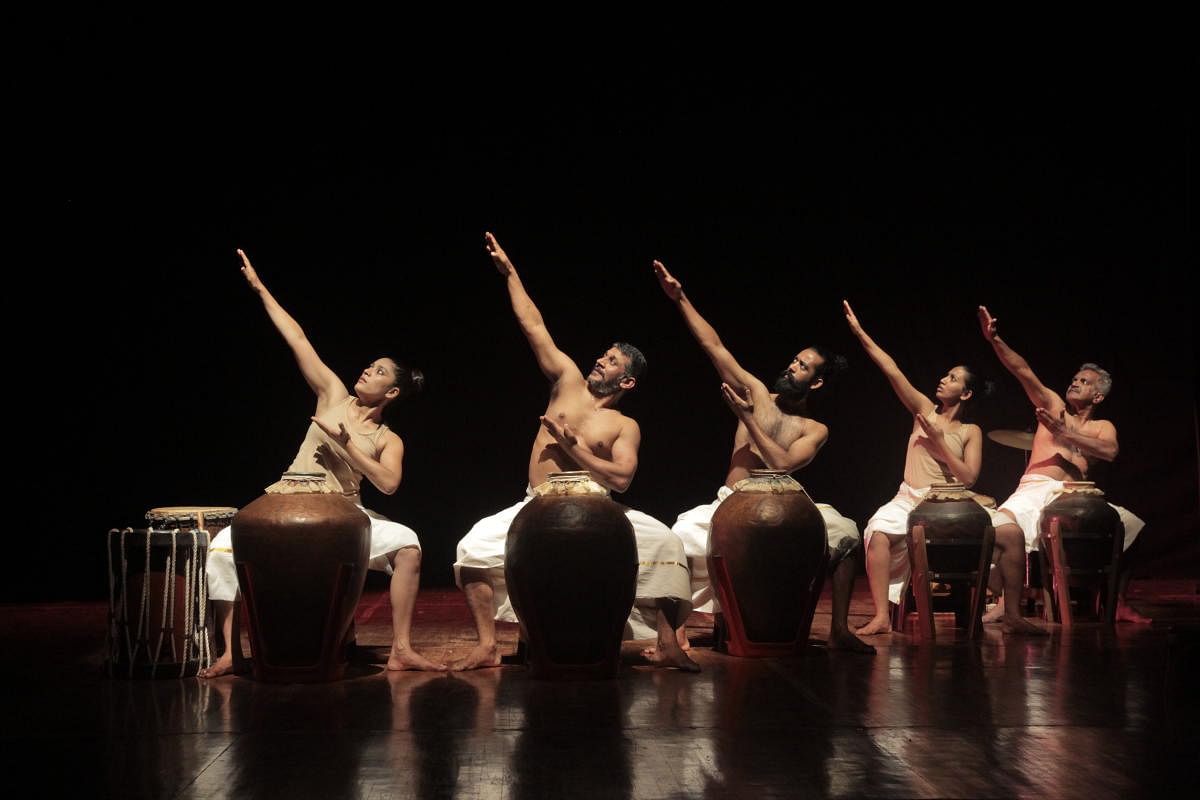
Adishakti Laboratory For Theatre Art Research is bringing two of their long-running plays to Bengaluru this weekend. The Auroville-based theatre group is staging ‘Ganapati’ (premiered in 2000) and ‘Brhannala’ (premiered in 1999), creations of their guru Veenapani Chawla, who passed away five years ago.
Metrolife spoke to the creative director Vinay Kumar to know more.
What are Adishakti’s plays like?
Our core idea is to take a story from the past and connect it to the present. We are not narrating the stories as it is, rather they are taken as debate points.
How do you tweak epics to suit the modern world?
You might think that the modern world is very complex, but in reality, we are dealing with the dilemmas as our ancestors — the collapse of the ethical and philosophical world around us. When our understanding of these is broken, we get what we want through brute force. But this problem is not new and we connect the dots to show that it has persisted then, it’s happening now.
All of your plays are in English?
They are but we still retain the rhythms of Indian languages so it is not difficult to understand.
Also, in Ganapati, the verbal text is minimal. The play explores the idea of rhythm as text, with the core rhythm expressing the emotion at that point. Complex mathematical rhythm structures of drumming are involved.
What kind of training did the actors undergo?
All the actors trained for one year to learn the language of drumming and other traditional instruments. This was accompanied by our usual physical training in martial arts and other skills because the physical form is very important in this play.
Could you share your favourite memory with Veenapani?
In Brhannala, there is a scene where Shiva is talking about the universe unifying three phases of time- past, present and future. It was good as an idea but how do you visualise it? Veenapani tried for a long time but nothing was working out.
During one of the rehearsals, a cricket match was being telecast. I wanted to watch Sachin but wasn’t allowed. So like any boy who is bored, I pretended to bowl, hit the ball and catch it. Veenapani saw it and said ‘That’s exactly how we are going to show past, present and future’ — a ball is bowled, it is hit, it is caught and thrown at the target, all by the same person — synchronising past, present and future in one movement. And that is the remarkable ability of Veenapani - to pick up accidents and turn it into a fantastic theatrical experience.
Veenapani: A pioneer in experimental theatre
A self-taught artiste, she evolved a new language of theatrical practice that fuses traditional and modern aspects of life and theatre. She was a multi-faceted personality, and was a teacher, journalist and author before turning to acting, directing and finally founding her own company Adishakthi in 1984.
About ‘Ganapati’ and ‘Brhannala’
Vinay says that ‘Brhannala’ is about recognising the male and female in the body; together and not as separate entities. “In the story of the Mahabharata, exiled warrior-prince Arjuna chooses to become a woman for a year, after which he sees the futility of war. That’s a turning point in Mahabharatha,” he says. From there on, the play dramatises the consequences that accompany a dissolution of all rigid binary oppositions. “Though there are different narratives, the fundamental concept is polarities unifying within one spectrum.”
‘Ganapati’ is an interpretation of the birth stories related to the elephant-headed God, in a recurring cycle of creation, celebration, destruction and return. It talks about inclusivity, hybridity and allowing the ‘others’ to coexist peacefully.
At Ranga Shankara
Ganapati will be staged on December 6 at 7.30 pm and on December 7 at 3.30 pm and 7.30 pm and Brhannala on December 8 at 3.30 pm and 7.30 pm. Tickets cost Rs 250 and will be available at the venue and on bookmyshow.